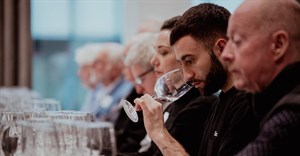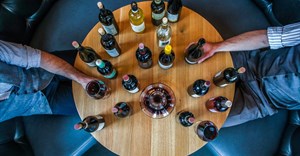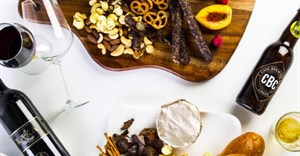
Slow wine tasting: Part 2

Appreciation
The core of any wine review has to be a detailed description of the colour, nose, taste and aftertaste of the wines reviewed. The language should be descriptive - eg "a nose of apricots and almonds" or "tastes of ripe Mirabelle plums." Qualitative language such as "good'', "better" or "best" is not very helpful. I don't primarily want to know whether the wine writer enjoyed the wine. I want to form my own opinion as to whether I am likely to enjoy the wine.
The best wine writers are those who are consistently and accurately able to describe the experience of drinking a wine with as much relevant detail as possible.
Stop scoring
If the wine writer wants to record a score out of five stars or 20 points or 100% or 500 bunches of grapes in his/her private notebook that is his/her prerogative. I do not want to know that score. Outside a closely-knit group of friends who know each other's preferences and idiosyncrasies, wine scoring is not helpful and may create a dangerous illusion that all wines should conform to some global norm.
Part of the enduring appeal of wine is that each vineyard can be different, provided it is allowed to express itself and has not had the life choked out of it by a flying winemaker or a supermarket buyer. While rational objective discussion of the taste of a wine is possible, there is ultimately a subjective and individual element to the enjoyment of wine that cannot be communicated numerically.
Personally, I delight in the apple-like freshness and steely mineral notes of a typical young Saar Riesling. There are people who prefer the cat urine smell of Sauvignon Blanc. I do not begin to understand why, but I respect their right to a different preference. I do not buy wine because Mr Parker or Ms Robinson enjoyed the wine. I respect their expertise and their views, I read their descriptions with interest but I am not bound by their opinions as to what tastes best. I may rely on their descriptions but not their scores to buy wine for the enjoyment I expect to derive from the wine.
I sometimes buy wine because I expect a friend who will be a dinner guest to enjoy the wine. Personally, I'm not that fascinated by wine with bubbles. However, I acknowledge the pleasure my wife derives from Champagne and Cava and keep a permanent stock. I do not expect Mr Parker or Ms Robinson as dinner guests. Therefore, I buy the wine I expect to enjoy and that I hope my guests will enjoy. To do otherwise is dishonest. People who buy wines to drink based on the score of some perceived guru are deserving of consignment to Pseud's Corner. I would much prefer the company of an honest bloke who enjoys a lager.
To drink or let age
I would like the wine writer to express an opinion as to whether the wine is ready to drink and, if not, when it will be ready to drink and whether it will improve in the process. I am also interested to know when the wine is likely to start declining. If I decide to buy the wine, these issues will influence how much I buy, as well as my consumption pattern. Once again, language is an issue and accurate factual description is more useful than judgment. I like port that is quite old and mild. Others prefer a more tannic grip.
Drink independently
Independence. Unfortunately, this has to be the biggest failing of much wine journalism. To ensure proper governance and avoid undue influence I would like the absolute assurance that the wine writer or his/her employer paid for the wine consumed and that neither of them has any business or other connection to anyone in the wine industry from the supplier of the rootstock to the advertising agents of the retailer.
I need to know, at a bare minimum, that neither the owner of the vineyard nor the winemaker nor the vendor was in the room at the time when the wine was tasted. By preference, the owner of the vineyard and the winemaker should be 100+ km away on the other side of the Hex River Mountains. Nor is the problem unique to South Africa. The wine writer who tells us about the wines he enjoyed at Chateau X while having lunch with Baron Y is not telling us anything objective or useful about the wines consumed. Click - closed on that page!
consequences of tasting by committee
I have an aversion to wine shows and blind tastings - particularly when carried out by a panel/committee. What happens at these events is that a panel of three or more experts taste anything from 20 to 100+ wines blind. Supposedly, the fact that they are unable to see the labels should lead to objective tasting results. Ironically, blind tastings are the enemy of quality wine assessment.
The first thing that goes wrong is that a norm is established for what Paarl Pinotage, or whatever is being tasted, should taste like. Wines that do not accord with the norm are rejected as faulty or sub-standard. Some wines may indeed be faulty, but in the process, wines with individuality and occasionally genius are eliminated and what remains is a MacDonald's type selection, where every bottle is predictable.
The second consequence of a blind tasting, where wine is briefly tasted before being spat out, is that, provided it is typical of the norm, what stands out are the most overripe, over-extracted, over-oaked and over-alcoholic wines. There is no time to search for complexity, minerality, development in the glass, potential or compatibility with food. The double gold medals with platinum stars and oak leaves are frequently awarded to wines that, in my opinion, are vulgar monstrosities.
If the blind tasting is conducted by a panel/committee supported by accountants this third blow serves to squeeze the last drops of individuality out of the process, as the scores are averaged and scores that deviate too far from the norm are eliminated.
Swallow, don't spit
Therefore, I ask of the wine writer that he/she should have drunk at least one whole glass of the wine without spitting anything out. Ideally, the wine writer should at least have contemplated finishing the bottle. This will allow time for the wine to develop and to assess its potential.
Next time you taste some overripe, over-extracted, over-oaked, over-alcoholic double gold medal wine, contemplate drinking the entire bottle. If you find the contemplation pleasurable, go and buy a case but please don't invite me to dinner. However, I warn you to have a bucket on hand. The idea of finishing a bottle of many double gold award-winning wines is equally likely to leave you feeling bilious. I like the kind of wine that leaves me wanting to finish the bottle even if I will not actually do so.
Eat, drink, be merry
Lastly, I suggest the wine should have been consumed with food to allow the wine writer to comment on the combination and suggest possible menu choices to accompany the wine.
All of this will take time and even the most diligent wine writer will not be able to taste and review more than three or four wines per day. However, we would get some wine writing worth reading rather than a list of scores that are of no use except as a cautionary tale for children who contemplate statistics as a career.
About Peter Brits
Peter Brits has been a collector and appreciator of wines for 30 years.
















